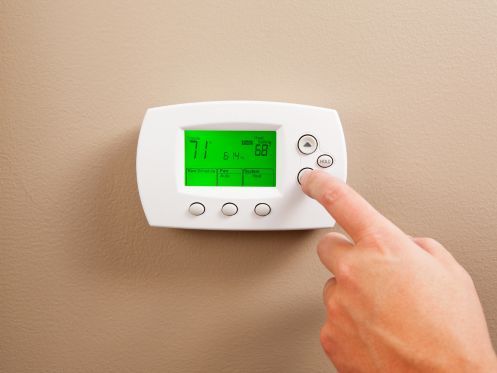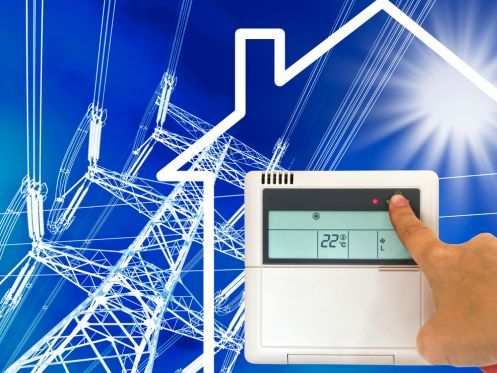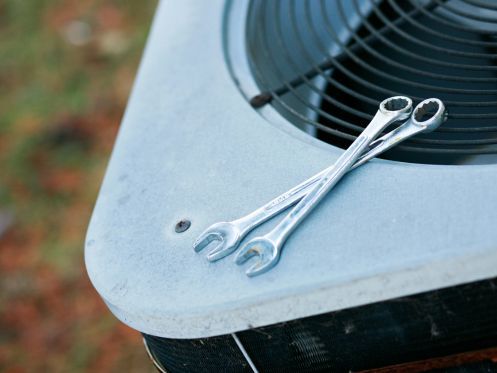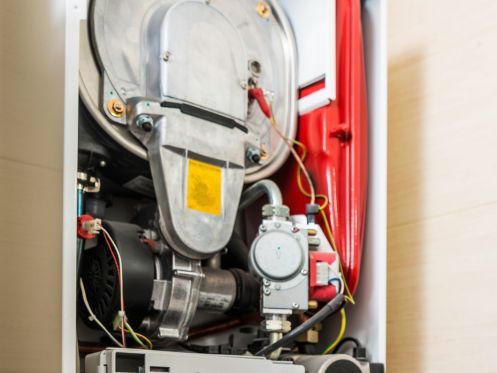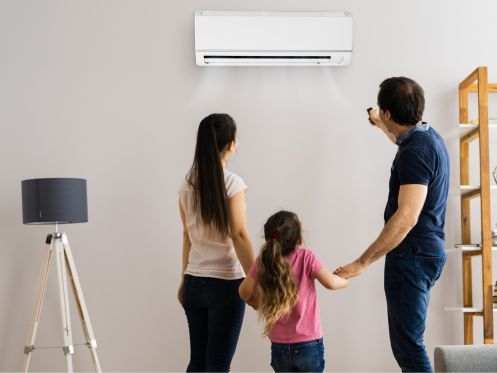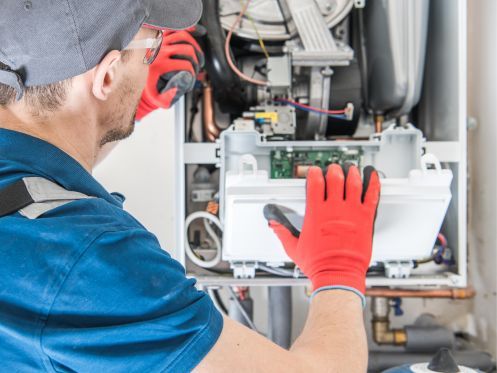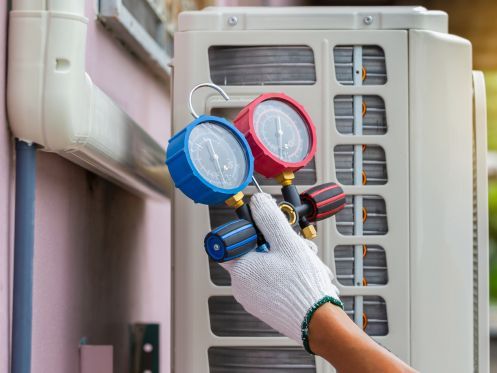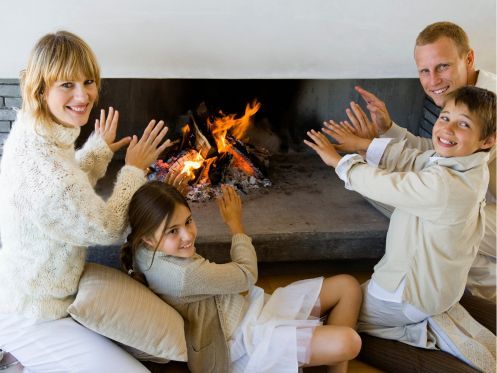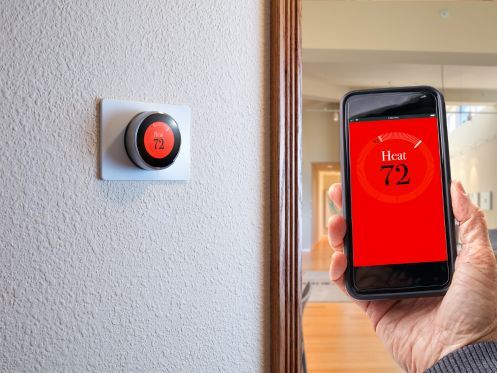In most places, the closer it gets to winter, the cooler the temperature becomes. When wintertime approaches, you need to start thinking about heating the inside of your home to protect against the frigid air outside.
There are several options available for heating your home. The option that’s right for you is going to vary, based on where you live and the size of your residence. Here are some great options for keeping your home warm during the winter.
SPACE HEATERS
Indoor space heaters generate a lot of discussion. On the one hand, there are people who swear by them. On the other hand, there are people who believe that the potential risk outweighs any benefit. However, when used appropriately, a space heater can play a vital role in keeping your home warm during the winter.
Space heaters are less expensive than other heating equipment. They can cost less to run than your central heating system at the same temperature. Modern space heaters are user-friendly, elegant, and easy to use. Manufacturers have done a good job at minimizing the risk of space heaters causing fire or burns. Space heaters might be a part of the overall solution for achieving optimal heating in your home.
WOOD STOVES AND FIREPLACES
Wood fireplaces are functional and can be decorative. They make a home feel pleasant. And they actually heat up the room. Some families have installed fireplaces in their living room or in another room where people gather to make it more inviting.
Fireplaces are a strong heat source. If a fireplace is centrally located in the home, the heat will quickly find its way to the rest of the house. It’s a practical heating alternative that can save money and energy. The wood is cheap, and it’s easy to store. Additionally, a fireplace engenders a sense of peace and tranquility. It makes just about any space feel warm and relaxing.
You can rely on your fireplace to provide direct heat. Or you can connect your fireplace to your home’s HVAC system and use the heat from your fireplace to transmit warmth throughout your home.
FURNACES
Furnaces are some of the most affordable home heating systems available. This doesn’t mean that furnaces are cheap, nor does this mean that you should purchase a furnace that is cheaply made. When it comes to a system that is as important to your home as your heater, you want to get something of quality.
Furnaces allow you to choose your fuel option. There are electric, propane, and natural gas furnaces. Most people opt for natural gas. It can be piped directly into the property. Electricity is the most expensive option. For people who live in areas where they don’t use a lot of heat, like Florida or Southern California, an electric furnace might end up being a cost-effective option as opposed to people who live in Wisconsin or Minnesota. People who live in colder states need to keep their home heated for a good part of the year.
One of the most attractive things about a furnace is that it’s comfortable. With a furnace, all you need to do is flip a switch and your home is warm and comfortable.
BOILERS
Boilers are hydraulic heating systems. They utilize a fuel source to heat up a fluid. In most cases, this fluid is water or glycol. The heated liquid is pumped through your heating system to different devices, like radiators, to heat your home. A boiler can also serve as a way to heat the hot water in your home. It can be used to provide hot water for your bathroom, kitchen, laundry, etc. Boiler heat does not need ductwork. It is primarily found in older homes. One unique feature of boilers is that boilers can be installed one room at a time and used only as is needed.
SOLAR HEAT
Solar heating systems can save you money, especially if you live in a cold climate that has great solar resources. In some areas, solar heat is replacing more expensive fuels, like oil, propane, and electricity. You can save additional money thanks to income tax credits, deductions, and property tax exemptions when using solar energy systems.
The cost of installing and using an active solar heating system varies from place to place. Most solar heating systems have a 10-year warranty but are realistically designed to last for decades longer. Using active solar energy can drop your fuel bill over the winter. Solar heating is good for the environment as it reduces pollution and greenhouse gases.
EASY WAYS TO KEEP YOUR HOME WARM DURING THE WINTER
Just because there are several options for keeping your home warm during the winter doesn’t mean that you want to waste energy unnecessarily to keep your home warm. Thankfully, there are some very basic things that you can do to keep your house warmer throughout the winter, thus reducing your energy costs and consumption.
For example, if you are using radiators, make sure that your furniture is not blocking the heat from effectively warming the room. If you move the couch out of the way, the room will warm up faster and you will spend less on energy.
Another tip for radiator users is that if your radiator is attached to an external wall, take some aluminum foil and put it behind the radiator. The aluminum foil is naturally reflective. This will stop the heat from traveling through the wall and reflect it back to the room.
Another simple option is to use rugs. Rugs keep your feet warm, especially if you have tile or hardwood floors. Additionally, they add style to any room.
Close the dampers. Some ductwork has dampers that adjust airflow. Look for the handles on the ductwork and markings that indicate which way the damper valve should be pointed during the winter. The damper handle should be parallel to the ductwork for maximum airflow during the winter.
Finally, keep your furnace clean. If you are having heating trouble, change the filter. In most cases, the problem will disappear.
GET FAMILIAR WITH YOUR HEATING OPTIONS
This is just a brief description of the different heating options available. Not all options are going to work well in all homes. However, it’s a good idea to become familiar with each style. It’s best to find out what is going to fit your comfort needs, your home, and your budget.
At Air Docs Heating & Cooling, we help homeowners in Vero Beach, FL, with their heating and air conditioning needs. We install, repair, and maintain heating and air conditioning systems. We have been helping residents in our area since 2012 and are committed to providing quality service that our customers can rely on.
Are you worried that your heating system may not be up to snuff come winter? Don’t worry another minute. Contact us at Air Docs Heating & Cooling today. We will help you keep your home and your family warm during the winter months.

